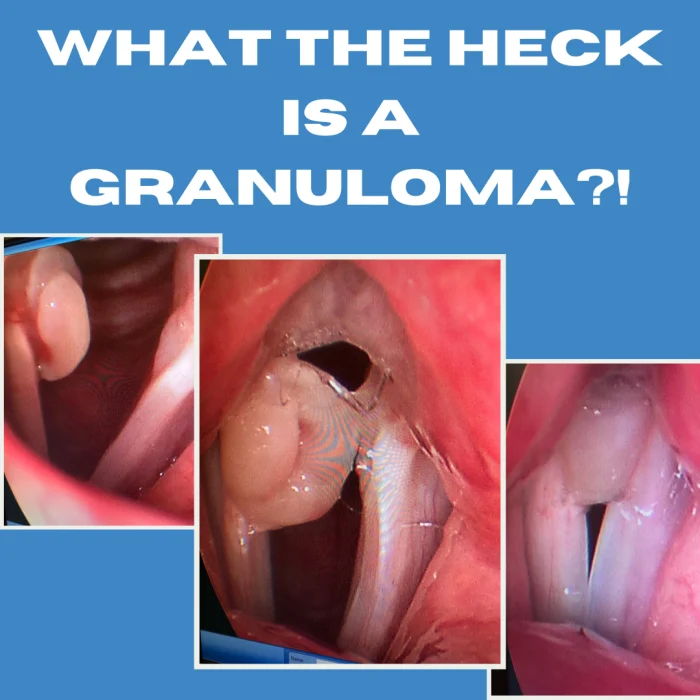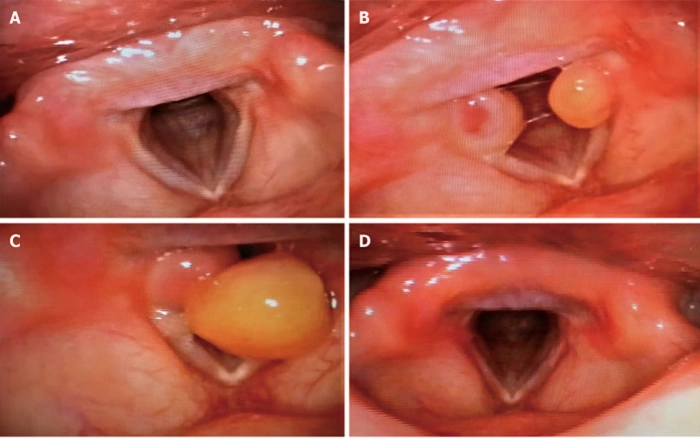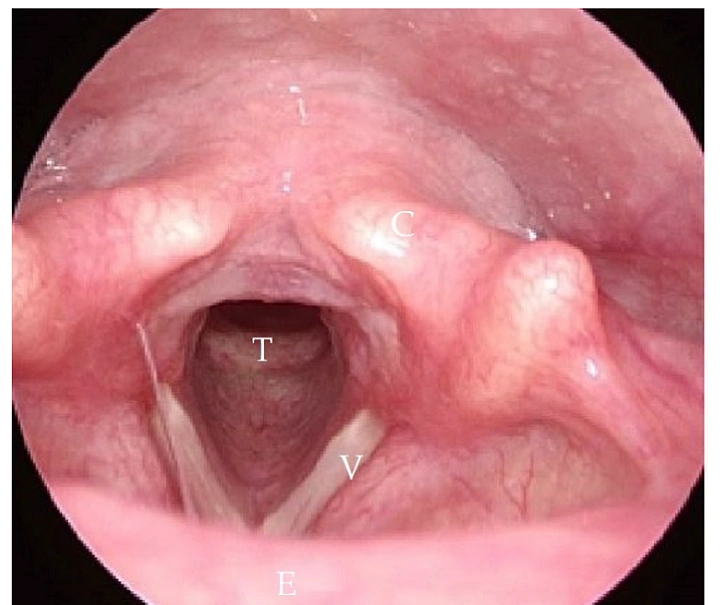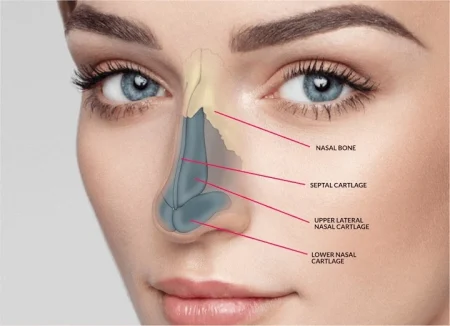Among the most powerful tools that you possess with you every day is your voice. You use it to communicate, and to sing. You also use it to teach, or just to chitchat with buddies. But sometimes tiny bumps pop out on your vocal cords. It hurts or makes you speechless. One of those is vocal cord granuloma.
Vocal cord granuloma is not cancer and is usually not fatal, but it can hurt and interfere with your daily activity. It looks as a manifestation of tissue inflammation or injury on your vocal cords and forms a small mass. Without treatment, it will make your voice hoarse, weak, or even absent.
What Is a Vocal Cord Granuloma

Vocal cord granuloma is swelling or growth at the posterior part of the vocal cords. Your vocal cords are thin. It has soft tissues within your voice box (larynx). It vibrates to produce sound. If they become inflamed or injured. Then your body attempts to hide them by developing a small tumor known as a granuloma.
Granulomas are not malignant tumors. They do, however, cause voice problems and throbbing if not treated.
Causes of Vocal Cord Granuloma
There are actually quite a few causes as to why an individual would have a granuloma on their vocal cords. Some of the more common ones include:
Abuse and abuse of the voice speaking loudly, screaming, or speaking continuously for a lengthy period of time can overexert the vocal cords
Acid reflux that is refluxing up from the stomach and irritating the vocal cords
Intubation having a tube down in the throat during operations can be inflammatory
Trauma or injury accidental trauma to the throat can cause granuloma formation
Chronic coughing or throat clearing repeated irritation of the vocal cords can cause granulomas
Symptoms of Vocal Cord Granuloma
They are divided on the basis of the size of the granulomas, small or large. The most frequent symptoms are:
Croaky voice or hoarseness
Weakness of the voice following minimal talking
Speech pain or discomfort
Sensation of something being lodged in the throat
Recurring cough or throat clearing
Weakness of voice or hoarse bass voice
Respiratory issue in extreme cases if the granuloma is huge
If you have had these symptoms for more than two weeks, it is extremely important that you see a physician.
How Vocal Cord Granuloma Is Diagnosed
Physicians diagnose vocal cord granuloma by taking a look at the voice box. Diagnosis most typically includes
Medical history that the physician orders for symptoms, way of life, acid reflux, or history of intubation
Laryngoscopy placement of a small tube in the nose or mouth to examine the vocal cords
Stroboscopy special procedure that uses flashing light to inspect how the vocal cords vibrate
Other tests on rare occasions, imaging or biopsy will be conducted in order to make certain it is not otherwise ill
Treatment of Vocal Cord Granuloma
Treatment is based on why and how large the granuloma is. Some of the most common treatments are
Voice Therapy
A speech pathologist teaches you how to use your voice. This may include
Learning not to talk when straining
Increasing breathing exercises to support your voice
Avoiding shouting or whispering
Voice therapy is most often the initial treatment.
Medication
Medication with antacids to slow stomach acid if acid reflux is the main reason
Anti-inflammatory medications to reduce swelling
Cough syrup in case persistent coughing is tiring your vocal cords
Surgery
If the granuloma is large or not alleviated by other treatment, surgery may be performed. Doctors remove the hump using special instruments. Surgery is not typically feasible, however, because granulomas will occur again unless the problem is corrected.
Lifestyle Changes
Abandon alcohol and tobacco consumption
Reduce dehydrating caffeine in the throat
Sleep head slightly elevated to reduce reflux
Increase water intake to keep vocal cords moist
Recovery from Vocal Cord Granuloma

Dependent on treatment used. Recovery in most patients within weeks to months of medication and voice therapy. Recovery a few weeks after surgery.
After healing, patients need to:
Rest voice and don’t scream
Keep well hydrated
Do voice therapy exercises
Keep to a reflux diet (less fried, hot, or acid foods)
Avoid throat clearing and overcoughing
Risks and Complications
Even though vocal cord granuloma is benign, if left untreated, it will have the following consequences
Hoarseness
Chronic changed voice
Difficulty speaking at work or in social situations
Shortness of breath as the granuloma grows
Cost of Treatment
Vocal cord granuloma treatments differ in price
Voice therapy 50–150 dollars per session
Medication for acid reflux 20–100 dollars monthly depending on medication
Surgery 2,000–5,000 dollars depending on hospital and procedure
Most insurance providers do cover treatment when medically indicated.
Precautions to Keep Your Voice Safe
Take proper care of your voice post-treatment also to prevent re-occurrence of granulomas. Here are some simple tips
Minimum 6–8 glasses of water per day
Warm up your voice while speaking for long or singing
Avoid screaming, yelling, or whispering excessively
Rest while speaking or giving long speeches
Take care of acid reflux by diet and medications
Use a microphone when speaking to a crowd instead of yelling
Frequently Asked Questions
Is vocal cord granuloma cancer
No, it is a benign tumor caused by inflammation or trauma.
Can vocal cord granuloma heal on its own
Occasionally small granulomas will improve on their own with rest and reflux treatment, but most require treatment or medication.
How long does recovery take
Most of the patients recover in 4–12 weeks if one treats them early but others take time.
Does vocal cord granuloma recur
Yes, unless it is treated for its cause like acid reflux or voice abuse, it will recur.
Is surgery always necessary
No, most of the granulomas will heal by themselves with voice therapy, medication, and changing a habit. Surgery is reserved only for recalcitrant cases.
Vocal cord granuloma is a relatively prevalent but rarely ever misdiagnosed syndrome. It is nontoxic but has the bleak impact of actually making speech and continuing with your life more difficult. Most people do, though, recover fully with effective treatment by voice therapy, medications, and minor lifestyle changes.
If your voice is weak, sore, or chronically hoarse, don’t wait and see what will happen. Early treatment and diagnosis will lead to quicker and easier recovery. Proper protection and care will render your voice healthy, strong, and clear for many years to come.








